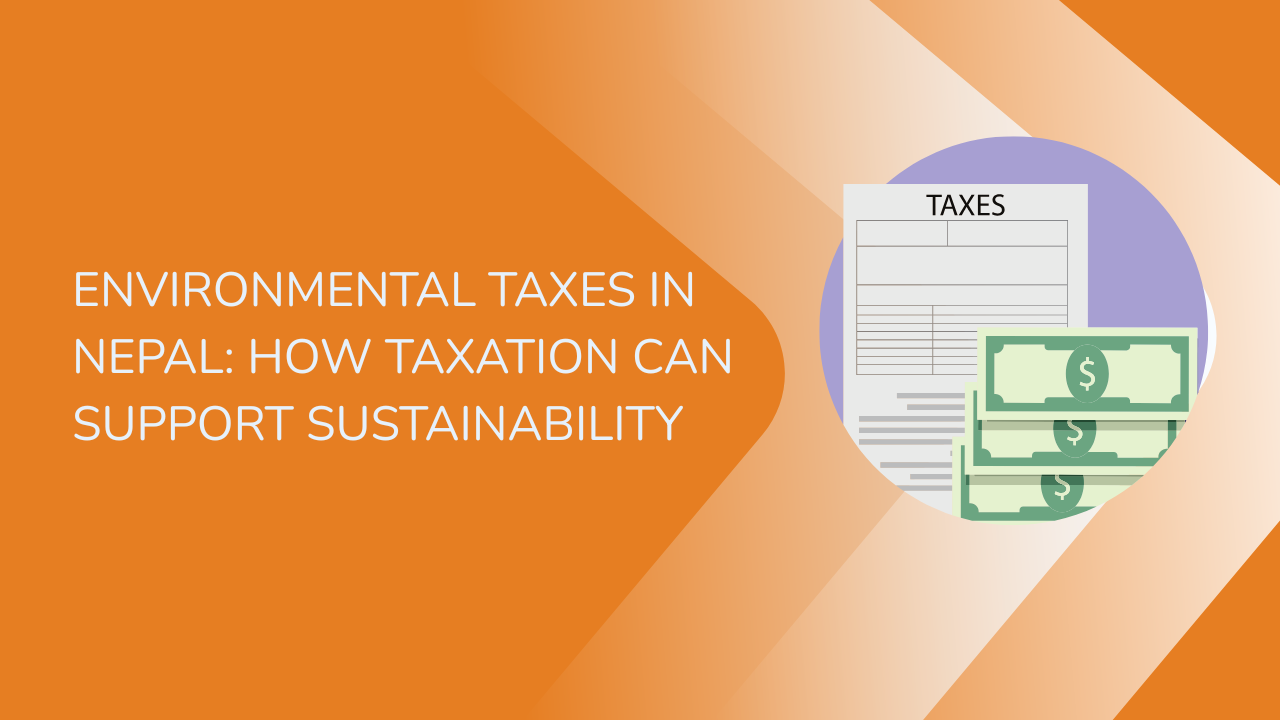Share this Article
Starting a new business can be an exciting yet daunting endeavor, and understanding the financial aspects is crucial for its success. In Nepal, the government has recognized the importance of fostering entrepreneurship and startup growth. To support this, a variety of tax benefits and incentives have been introduced, specifically targeting startups and entrepreneurs. These tax advantages not only ease the financial burdens of new businesses but also encourage the growth of innovation, investment, and job creation in the country.
Understanding these tax benefits and incentives can provide startups with the tools they need to maximize profits, reduce tax liabilities, and reinvest in their businesses. Whether you're launching a new venture in technology, manufacturing, agriculture, or services, Nepal offers a variety of tax exemptions, deductions, and reduced tax rates aimed at helping you get your business off the ground.
This article explores the various tax benefits and incentives available for startups and entrepreneurs in Nepal. We will look at the tax holidays, reduced tax rates, exemptions, deductions, and other essential strategies that will assist in minimizing taxes while fostering business growth.
1. An Overview of the Entrepreneurial Landscape in Nepal
Nepal’s entrepreneurial ecosystem is steadily growing, with increased interest in sectors like technology, renewable energy, manufacturing, tourism, and agriculture. The government has created a conducive environment for startups by offering multiple financial incentives. However, despite these opportunities, many entrepreneurs face obstacles such as limited
access to funding, market competition, and regulatory issues.
Recognizing these challenges, the Nepalese government has been proactive in addressing the needs of businesses through specific tax reliefs and financial assistance. These initiatives are designed to make it easier for startups to operate in the country by reducing initial costs, lowering taxes, and providing other forms of financial assistance.
To support the growth of small and medium-sized enterprises (SMEs) and startups, the government has implemented several policies aimed at fostering entrepreneurship. These efforts are crucial to boosting innovation, improving employment rates, and contributing to Nepal’s overall economic development. Tax benefits play a vital role in this process, enabling entrepreneurs to focus more on their business operations while reducing their tax burden.
2. Tax Benefits for Startups in Nepal
Nepal offers a variety of tax benefits designed specifically to support startups. These include tax exemptions, reduced tax rates, and financial aids. Let’s take a deeper dive into the key tax incentives available for businesses in the early stages.
Tax Holidays and Exemptions
One of the most significant tax benefits for startups is the tax holiday. The government offers tax holidays to businesses in specific sectors that are essential for national development. During the tax holiday period, businesses are exempt from paying corporate taxes for a specified number of years, allowing them to reinvest their profits into business operations and expansion.
- Eligibility for Tax Holidays: Startups involved in priority sectors like technology, manufacturing, and renewable energy are eligible for tax holidays. Businesses in these sectors are granted exemptions from corporate taxes for up to 5 to 7 years, depending on the nature of the business.
Benefits of Tax Holidays: A tax holiday allows startups to focus on scaling their operations, hiring employees, and expanding their market reach without worrying about corporate tax payments during the initial phase of their business. This helps businesses avoid significant financial burdens, especially during the critical early stages of growth.
- exchange and improve its balance of payments.
These reduced tax rates provide significant financial relief to startups, allowing them to reinvest more of their profits into growth and expansion while creating a competitive advantage in their respective markets.
Exemption on Export Income
Startups that focus on exporting goods and services can take advantage of exemptions on income generated through exports. This is an essential incentive for businesses looking to grow internationally, as they are exempt from paying taxes on their export earnings. This benefit helps startups focus on expanding their market presence in foreign countries without the added burden of corporate taxes on their international income.
By removing the tax burden on export revenues, the government aims to encourage startups to participate in global markets, thereby contributing to the country's economic integration into the world economy.
Tax Benefits for Research and Development (R&D)
Startups focused on research and development (R&D) activities can claim several tax benefits. Nepal has been increasingly prioritizing innovation as a key driver of economic growth. To support businesses engaged in R&D, the government offers tax incentives that help startups reduce their financial burdens. Some of the notable R&D-related benefits include:
- Deduction of R&D Expenses: Expenses related to research and development, such as employee salaries, equipment costs, and materials used in developing new products, are tax-deductible. This deduction allows startups to reduce their taxable income, thereby lowering their overall tax liability.
Tax Exemptions for Innovative Projects: Startups that undertake innovative projects may qualify for additional tax exemptions. These exemptions are meant to incentivize
By offering these R&D benefits, the government encourages startups to invest in technology and new product development, which can help improve productivity, efficiency, and competitiveness in the global market.
Depreciation Allowances for Capital Assets
Capital assets such as machinery, vehicles, equipment, and buildings are vital for startups, especially in the manufacturing and industrial sectors. In Nepal, businesses can claim depreciation on these assets, which helps reduce their taxable income. By spreading the cost of capital assets over time, startups can claim deductions each year, thus lowering their overall tax liability.
- Depreciation Rates: The government sets out specific depreciation rates for different types of assets. For example, manufacturing equipment and machinery typically have higher depreciation rates, allowing businesses to claim a more significant portion of the asset's cost each year.
Certain employee-related expenses, such as health insurance, pension contributions, and other fringe benefits, are also deductible. Offering these benefits to employees not only helps startups attract and retain talent but also reduces their tax liability. Additionally, providing benefits such as healthcare and retirement plans improves employee morale and productivity.
Startup Costs
New businesses often incur a variety of initial costs when setting up their operations. These include costs for legal services, business registration, market research, and developing a business plan. These startup costs can typically be deducted from taxable income, providing some financial relief during the initial stages of business.
4. Other Financial Incentives for Startups
Apart from direct tax incentives, the government provides other financial support to encourage startup growth in Nepal. These include:
Government Grants and Subsidies
The government provides grants and subsidies to businesses in priority sectors such as manufacturing, renewable energy, and tourism. These financial aids help startups reduce their initial setup costs and provide essential capital for growth and innovation.
Depreciation is a valuable tax benefit because it helps businesses lower their taxable income, thereby reducing the amount of taxes they need to pay. This financial relief can improve cash flow, enabling businesses to reinvest in their operations and accelerate growth.
3. Key Tax Deductions for Startups
In addition to the tax exemptions and reduced tax rates, startups can also claim tax deductions on a variety of business-related expenses. By taking advantage of these deductions, startups can significantly reduce their taxable income. Some of the key tax deductions for startups in Nepal include:
Operating Expenses
Startups incur various operational costs that are essential for running day-to-day business activities. These expenses can be deducted from taxable income, reducing the overall tax liability. Some common operating expenses that are deductible include:
Venture Capital and Investment Opportunities
Nepal’s startup ecosystem has gained the attention of venture capitalists (VCs) and investors. The government has introduced initiatives to connect entrepreneurs with potential investors, such as through the Nepal Investment Board and venture capital funds. These programs are designed to provide financial support for high-growth startups.
Subsidized Financing and Loans
Startups can access subsidized loans from government-backed financial institutions. These loans typically come with low-interest rates and favorable repayment terms, allowing startups to secure the capital they need for business expansion.
5. Tax Filing and Compliance for Startups
To ensure that startups fully benefit from these tax advantages, it is essential to comply with tax filing and reporting obligations. This includes filing annual tax returns with the Inland Revenue Department and adhering to quarterly VAT filings for VAT-registered businesses. Startups should also deduct and remit employee withholding taxes and ensure they meet all tax deadlines to avoid penalties.
6. Conclusion
Nepal’s tax system offers a variety of benefits and financial incentives designed to support startups and entrepreneurs. From tax holidays and exemptions to deductions for business expenses and R&D activities, these benefits reduce the financial burden on new businesses, allowing them to focus
Maintaining accurate records and ensuring timely tax filing is critical for entrepreneurs to stay compliant with tax laws while maximizing available benefits.
Categories:
Tax Information
Tags:
NepaliEntrepreneurs







